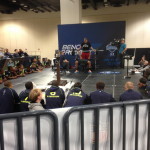Rob Bell's Blog, page 33
March 13, 2014
7 life lessons from the movie HOOSIERS
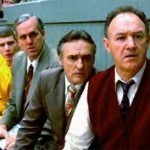 Indiana has two seasons, basketball season and waiting for basketball season. Although, This newsletter won’t make much sense if you haven’t seen the classic 1986 movie, HOOSIERS.
Indiana has two seasons, basketball season and waiting for basketball season. Although, This newsletter won’t make much sense if you haven’t seen the classic 1986 movie, HOOSIERS.
Hoosiers is based on a true story, 1954 Milan High School with a tiny enrollment of only 161 students. It was a true David vs. Goliath story that ended with them winning the state tournament beating much larger schools in a single class system.
1) Be true to your convictions…
Norman Dale had a rule for playing team basketball that Hickory needed four passes before they shot. When Rade broke this rule by shooting, Coach Dale sat him, playing only four (4) players the rest of the game. The coach was booed out of the gym.
-It is tough to stay with our principles when they are contrary to the norm. However, we better have a plan in place and be true to our beliefs and mission, ready to sacrifice small wins for the larger purpose.
2) People will hate…
Coach Dale was an outsider, which people didn’t like. He even closed off practices, which was a no-no for that town. They even had a vote to try and remove him as coach.
-If your job is to please everyone, then you’ll fail. Focus on your role and accomplishing your goals. It doesn’t mean to ignore the naysayers, but just stay focused on the real goal and not trying to make sure everyone agrees with you.
3) We must have those crucial conversations…
Hickory was missing their star player “Jimmy Chitwood.” Coach approached him while he was shooting one day and told him the truth, “I don’t care if you play or not.”
-It is a risk to speak the truth to those close to us because they can reject the message or even us. However, if we don’t learn to have these conversations, we will never know the impact and more than likely regret never discussing the topic. In the movie, if coach hadn’t had the crucial conversation, Jimmy wouldn’t have gone to his defense.
4) We should have at least one gimmick…
When the assistant coach Shooter takes over late in the game, he runs the picket fence on them. His last message is epic, 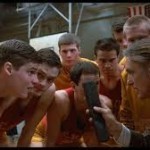 “just don’t get caught watching the paint dry. “
“just don’t get caught watching the paint dry. “
- I think all of us need to have something unique to ourselves or our business that we keep, a trick up our sleeve. We can’t use this tactic often, because the Picket Fence was only used once. We need to save our gimmick, for when we will need it the most.
5) Don’t show up drunk…
Shooter shows up to a game drunk, gets ejected, and simply looses it after that.
-Um, case in point, don’t show up drunk.
6) Focus on the process…
The big speech in the movie is saved for the semi-final game. To summarize, coach says, “focus on your fundaments, if you play to the best of your ability, I don’t care what the scoreboard says at the end of the game, in my book, we are going to be winners.”
-Too often, we focus on results and how the outcome will turn out, “will we win or lose?” There is fear in the outcome and it causes an ineffective type of focus. Coach reminds us to focus on the process of how we are going to perform and the steps that we need to do.
7) Be confident…
The best scene of the movie, and with time for one more play, coach calls a decoy play. Instead, Jimmy Chitwood tells him in the huddle, “I’ll make it.”
-We HAVE to be confident! It is the most important mental skill and it is also the most difficult. If we doubt our ability to recover from mistakes or to take risks, we will never be successful, period. We must believe in ourselves!!
It only takes one. The real Jimmy Chitwood, Bobby Plump, was asked during a CBS Final Four interview in 2010 in Indianapolis, “How important was that shot?” He replied, “I’m speaking to you right?”

 Dr. Rob Bell is a Sport Psychology coach. DRB & Associates based in Indianapolis works with athletes, coaches, and teams building their Mental Toughness. His 2nd book titled The Hinge: The Importance of Mental Toughness
Dr. Rob Bell is a Sport Psychology coach. DRB & Associates based in Indianapolis works with athletes, coaches, and teams building their Mental Toughness. His 2nd book titled The Hinge: The Importance of Mental Toughness was recently released. Follow on twitter @drrobbell or contact drrobbell@drrobbell.com
was recently released. Follow on twitter @drrobbell or contact drrobbell@drrobbell.com
February 27, 2014
5 take-a-ways from the NFL combine
Scouts, teams, and GM’s are measuring the measurables in a controlled environment many call the underwear Olympics. It offers evaluators a chance to see everyone in a non-game environment where coaching and schemes doesn’t factor. However, even with all of the interviews, testing, exams, physical tests, and video, draft picks often just don’t work out as expected. Namely, it is difficult to assess one’s mental toughness- how one will overcome adversity, & how one will play under pressure. It becomes an art because scouts are also trying to measure the immeasurable: leadership, work ethic, quality of teammate, character, etc.
I enjoy this test the most, probably because I can still bench so there is some tiny level of comparison. I also think we can see a glimpse of a player’s desire; how much someone wants it. Even though the bench press is not the most transferrable to success on the field, it does offer a snapshot of one’s strength.
I witnessed Robert Herron, WR, Wyoming, (projected 2/3 round) will himself to complete three more reps after he hit his limit at 15. After crosschecking with other scouts on his feat, the consensus was he has an “iron-will”.
Jeff Janis, WR, Saginaw Valley St, (projected 3 round) managed 21 reps in the bench press, but he was the only player I witnessed who actually cheered on his fellow WR’s before he lifted.
Since 0 QB’s attempted the Bench press, I think one quarterback would stand out in the future by merely attempting it.
3. Only 5 guys didn’t have this…
The initial physical testing for each position is the same; hand, arm, wingspan, height and weight. Armed only in their Under Armour briefs, these guys are all extremely built, so you notice when someone looks “soft,” not as defined or muscular.
During the Defensive Back’s weigh-in, I counted 5 players who had zero tattoos. At some point, these non-inked guys had to make a decision “not” to get it done. Interesting, because ink is such the norm these days that I merely wondered if there would be any correlation with success.
4. Confirmation bias…
Scouts have seen these guys at various points throughout the season and have all formed opinions, positive or negative. The fact is that with scouts, they are making biased opinions. It’s impossible for them to have an unbiased viewpoint. Even when the big names of each position are called, like Michael Sam, Johnny Manziel, or Jadeveon Clownley, everyone pays a tad closer attention…
Since people’s jobs and reputations are at stake with choosing the right player, how much of scouting is actually dismissing information that is contrary to their viewpoint (i.e., he had a slow 40 time), while highlighting information that confirms their belief (i.e., awesome arm)? Or as one scout put it, “The draft is not about hitting home-runs, it is about base hits.”
5. The hardest working coaches…
There were three coaches who were the most visible during my 3 days. I saw them everywhere!! And although Rex & Rob Ryan work with two different teams, they were always together. The third coach was Jack Del Rio of the Broncos. In addition, here is one of my favorite coaches…
The NFL Scouting Combine was incredible. I made these 5 observations because in all seriousness, I couldn’t tell one incredible athlete doing the 3-cone or shuttle drill from another. The 335 players all looked like PGA Tour pro’s on the driving range, everyone was elite!!!

 Dr. Rob Bell is a Sport Psychology coach. DRB & Associates based in Indianapolis works with athletes, coaches, and teams building their Mental Toughness. His 2nd book titled The Hinge: The Importance of Mental Toughness
Dr. Rob Bell is a Sport Psychology coach. DRB & Associates based in Indianapolis works with athletes, coaches, and teams building their Mental Toughness. His 2nd book titled The Hinge: The Importance of Mental Toughness was recently released. Follow on twitter @drrobbell or contact drrobbell@drrobbell.com
was recently released. Follow on twitter @drrobbell or contact drrobbell@drrobbell.com
February 20, 2014
DON’T say this evil word to yourself.
On October 25, 1986, The Boston Red Sox were up 5-3 in the 10th inning. They were 3 outs away from their first World Series since 1918. The Mets, however, rallied for 3 straight singles. The next play was a slow roller by Mookie Wilson up the first base line. It went through Bill Buckner’s legs and became known as the most costly error in all of sports.
The Hinge…
On October 9, three weeks before the costly error, Bill Buckner was giving an interview, wherein he said, “The dreams are that you’re gonna have a great series and win. The nightmares are that you’re gonna let the winning run score on a ground ball through your legs. Those things happen, you know. I think a lot of it is just fate.” 100
American social psychologist Daniel Wegner conducted an important research study in 1987. The researchers wanted to see how people suppressed their own thoughts. Study participants were asked to verbalize their thoughts continually for five straight minutes and to ring a bell if they thought or verbalized a “white bear.” The researcher, however, gave specific instructions before the five-minute session began: “ Try NOT to think of a white bear.”101
Wegner’s research showed that most individuals became preoccupied with trying not to think about a certain object. A meaningless object, such as a white bear, became lodged in the mind, and it would surface during moments of weakness. The real world application from this experiment is more pronounced, because we, as individuals, can become preoccupied with more significant thoughts other than a white bear. Worse is that the more we try to suppress it, it can create a rebound effect of pre-occupation.
Our minds are just like our coach. We will only remember the very last thing said by the coach. So, if the coach mistakenly walks off saying, “Don’t double fault, don’t walk him, or don’t strike out.” it is stuck in the head. Unless we can replace that thought of “don’t,” we will play trying NOT to mess up.
Our mental toughness is directly connected with our thoughts. We say what we don’t want to happen, instead of telling ourselves what we do want. We notice the danger and the bad things that can happen and become pre-occupied.
The key is to be able to replace the negative thoughts with an instructional cue or a focus on what we want to do. That’s mental toughness.

 Dr. Rob Bell is a Sport Psychology coach. DRB & Associates based in Indianapolis works with athletes, coaches, and teams building their Mental Toughness. His 2nd book titled The Hinge: The Importance of Mental Toughness
Dr. Rob Bell is a Sport Psychology coach. DRB & Associates based in Indianapolis works with athletes, coaches, and teams building their Mental Toughness. His 2nd book titled The Hinge: The Importance of Mental Toughness was recently released. Follow on twitter @drrobbell or contact drrobbell@drrobbell.com
was recently released. Follow on twitter @drrobbell or contact drrobbell@drrobbell.com
February 6, 2014
The Countdown to Performance…
Those of us who are paid to perform all have a countdown. The moment when we need to perform at our best because it matters the most.
 Sean Bartram at Core Pilates & Fitness trains the Colts Cheerleaders and on the mirror, he has the number of days before the try-outs. Many coaches, athletes, and teams also have similar countdowns, such as, the 2016 Olympic Trials, or FIFA World Cup. Maybe for us, it’s a specific race or event?
Sean Bartram at Core Pilates & Fitness trains the Colts Cheerleaders and on the mirror, he has the number of days before the try-outs. Many coaches, athletes, and teams also have similar countdowns, such as, the 2016 Olympic Trials, or FIFA World Cup. Maybe for us, it’s a specific race or event?
In order to play our best when it matters the most, we need to develop the mentality that our best is needed today. So, how do we develop this mindset?
Coaches in all areas find tons of ways to externally motivate. They create cultures of excellence, set goals, post motivational quotes, and even bring in speakers, ex-athletes or Sport Psychologists (yes!). Companies and businesses use the seemingly biggest external motivator of all, pay and benefits (except research shows this isn’t true). Each of these motivational tools all work, up to a point.
What replaces the external motivation actually becomes more important because at some point, it will get tough. We will have setbacks, encounter adversity, and struggle. What needs to motivate us is our “why.” Our internal motivation of “why” we do what we do.
If we don’t determine our “why”, we won’t continually put forth our best effort during the countdown. Complacency can easily set in and we may say to ourselves, “this day doesn’t matter that much.” The reality is that you’re right; physically it may not make a difference. However, it matters mentally, because if our “why” is not strong enough, we will make excuses when it gets tough. When the countdown to performance gets close, we will then put forth our best, but at that point, so is everyone else.
Our “why” should make us cry, if not, then it’s probably not our why…It is tough to develop an emotional connection to what drives us. What motivated us two years ago may not motivate us now! We may discover that our internal motivation is really about pleasing others, proving others wrong, or that we are actually trying to fulfill someone else’s goals that THEY had for US.
We are who we are when we are alone…We can fool everyone in our lives that we are putting forth our best effort, or that we have it all together. Except, we just can’t fool ourselves. If we want to perform our best when it matters the most, we need to develop our internal motivation now, not later. Think about it, pray about it, and write it down, you’ll know you’ve got your real “why” when it brings a tear to your eye.
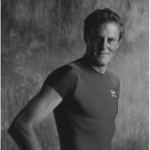 Sean Bartram B.Sc (hons.), MBASES is owner of Core Pilates and Fitness (www.corepilatesandfitness.com) and head trainer to the Indianapolis Colts Cheerleaders. Follow him @corepilatesllc
Sean Bartram B.Sc (hons.), MBASES is owner of Core Pilates and Fitness (www.corepilatesandfitness.com) and head trainer to the Indianapolis Colts Cheerleaders. Follow him @corepilatesllc

 Dr. Rob Bell is a Sport Psychology coach. DRB & Associates based in Indianapolis works with athletes, coaches, and teams building their Mental Toughness. His 2nd book titled The Hinge: The Importance of Mental Toughness
Dr. Rob Bell is a Sport Psychology coach. DRB & Associates based in Indianapolis works with athletes, coaches, and teams building their Mental Toughness. His 2nd book titled The Hinge: The Importance of Mental Toughness was recently released. Follow on twitter @drrobbell or contact drrobbell@drrobbell.com
was recently released. Follow on twitter @drrobbell or contact drrobbell@drrobbell.com
January 30, 2014
Get Rid of Your Mental Baggage
 I noticed this past winter that I had accumulated (hoarded) scores of magazines. I mean I had hundreds of Sports Illustrated, ESPN, and Golf Magazines all stacked up in a corner. Perhaps, I had justified keeping these because “I may refer to an article,” but in reality, they were just taking up space.
I noticed this past winter that I had accumulated (hoarded) scores of magazines. I mean I had hundreds of Sports Illustrated, ESPN, and Golf Magazines all stacked up in a corner. Perhaps, I had justified keeping these because “I may refer to an article,” but in reality, they were just taking up space.
Most of us keep things that we really don’t need, but we have yet to throw it away. Mentally, our minds work the same way; we hold onto baggage that serves no further purpose. This mental baggage is made up of poor decisions, bad play, resentments, self-pity, bad relationships, poor results, and hopelessness, etc. What really accompanies the mental baggage however is guilt and shame, which hinders any chance of being confident.
Mental baggage is any negative experience that we have not let go. However, instead of learning from the situation in which we were hurt or messed up, we hold on to it. Even airlines charge bag fees, but we allow our own mental baggage to live rent free in our head.
On the other hand, successful experiences and accomplishments are thrown away. We discount our good performances because it met our expectations and we tell ourselves “that’s what we were supposed to do.” Yet, when difficult times return and we have feelings of doubt, we still have that mental baggage of negativity.
Get rid of your mental baggage. It is a difficult process to do because it means reflecting on painful experiences. Not an easy task! Who wants to remember how it felt when they we fired, missed a shot, or even lost a loved one? But, the importance of mental toughness is that it only takes one! Each one of us has a moment, person, or decision that is coming up and it will make all of the difference. The Hinge can only connect when we can re-focus and completely “let it go.”

 Dr. Rob Bell is a Sport Psychology coach. DRB & Associates based in Indianapolis works with athletes, coaches, and teams building their Mental Toughness. His 2nd book titled The Hinge: The Importance of Mental Toughness
Dr. Rob Bell is a Sport Psychology coach. DRB & Associates based in Indianapolis works with athletes, coaches, and teams building their Mental Toughness. His 2nd book titled The Hinge: The Importance of Mental Toughness was JUST released. Follow on twitter @drrobbell or contact drrobbell@drrobbell.com
was JUST released. Follow on twitter @drrobbell or contact drrobbell@drrobbell.com
January 23, 2014
Current State of Mental Toughness
 Growing up, Mary Towe was the oldest of 8 children, and had to take care of her brother and sisters. For instance, she couldn’t go on any dates as a 16 year old until her newborn brother was asleep.
Growing up, Mary Towe was the oldest of 8 children, and had to take care of her brother and sisters. For instance, she couldn’t go on any dates as a 16 year old until her newborn brother was asleep.
The entire family delivered newspapers when they were old enough (10 & 11) and each child had to go door to door to collect the money!!! If a household didn’t pay, the money came out of their own check.
When Mary was 16, she wanted to a pair of contacts. In 1966, contact lenses were $150 for one pair.
To raise the money, she babysat three children after school for $14 a week for 6 months, which she had to take a bus back and forth. She then took a job at a bookstore working from 4-9, five days a week and all day on Saturdays.
It took her 2 years to raise the money because she also had to buy her own clothes, own food, and bus fare, while also saving for Washington School for Secretaries. There was no safety net if she fell.
That’s mental toughness!!!
When my mom and dad separated when I was 9, Mary proceeded to obtain her Associates, Nursing degree, Bachelor’s, followed by an MBA. (I know because I was a child sitting in some of those classes). She eventually became Vice-President of the hospital and was very successful.
She not only ran a 40-million dollar budget, but was an incredible baker, could train dogs, horseback ride, cross stitch, type 80 words a minute, and run half-marathons.
————————
Nowadays, the safety net is really close…
I often see parents waiting in their minivans with their children when it’s cold outside for the bus to arrive.
Currently, if a high school kid forgets his/her swimsuit, they call up mom or dad to bring it to them.
The present state of athletics is if a child is not getting enough playing time, parents just switch club teams or even high schools.
And we wonder why there is a sense of entitlement?

 Dr. Rob Bell is a Sport Psychology coach. DRB & Associates based in Indianapolis works with athletes, coaches, and teams building their Mental Toughness. His 2nd book titled The Hinge: The Importance of Mental Toughness
Dr. Rob Bell is a Sport Psychology coach. DRB & Associates based in Indianapolis works with athletes, coaches, and teams building their Mental Toughness. His 2nd book titled The Hinge: The Importance of Mental Toughness was JUST released. Follow on twitter @drrobbell or contact drrobbell@drrobbell.com
was JUST released. Follow on twitter @drrobbell or contact drrobbell@drrobbell.com
January 17, 2014
Focus like Pete Sampras
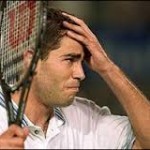 On Januray, 24, 1995, during the Quarterfinals of the Australian Open, two heavyweights, Pete Sampras and Jim Currier, faced off.
On Januray, 24, 1995, during the Quarterfinals of the Australian Open, two heavyweights, Pete Sampras and Jim Currier, faced off.
Currier won the first two sets and Pete battled back to win the next two sets. During the fifth set, Sampras became obviously emotional, crying during a serve. Later, we learned that Tim Gullikson, Pete Sampras’ coach and friend, had a brain tumor.
Jim Currier saw what was going on and offered an olive branch that turned into a weapon. He asked Pete during his serve, “You okay, Pete, we can do this tomorrow, you know?” 47
Pete Sampras took the remark as sarcasm by Currier and used it to his advantage. He said, “It kind of woke me up to be like, ‘OK, let’s focus’.” Pete Sampras ended up winning the match.
————————–
Mental toughness is a focus only on the task at hand. This shot, this point, this day…The more we can center only on one shot at a time, the better we will accomplish it. Can you achieve a relentless type of focus? Sometimes we will be called into this type of focus with a light switch moment, embrace it. Excerpt from The Hinge: Audio-book is now available…
.

 Dr. Rob Bell is a Sport Psychology coach. DRB & Associates based in Indianapolis works with athletes, coaches, and teams building their Mental Toughness. His 2nd book titled The Hinge: The Importance of Mental Toughness
Dr. Rob Bell is a Sport Psychology coach. DRB & Associates based in Indianapolis works with athletes, coaches, and teams building their Mental Toughness. His 2nd book titled The Hinge: The Importance of Mental Toughness was JUST released. Follow on twitter @drrobbell or contact drrobbell@drrobbell.com
was JUST released. Follow on twitter @drrobbell or contact drrobbell@drrobbell.com
January 9, 2014
What’s your 2014 BHAG?
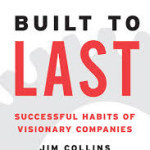 Your Big Hairy Audacious Goal.
Your Big Hairy Audacious Goal.
Here are mine: First and foremost, my goal is for The Hinge: the Importance of Mental Toughness to become the #1 Sport Psychology book. It has reached #9 & it will need to clip three Navy Seals books. eeeek. But, hey the audio-book is now out…
One step for that BHAG is that I am starting a streak….I was motivated by a colleague, who ran every single day in 2013. She didn’t miss one day. I also read about a 52-week streak that to saves money from each week.
Thus, every day, I am cold-calling a high-profile coach or individual and starting a discussion about The Hinge: The Importance of Mental Toughness. So far, I have contacted Ted Leonsis, Chuck Pagano, Eric Musselman, Dana Holgorsen, and Sean Payton.
My other streak is for you to receive the mental toughness newsletter every Friday. Sign-up here to get it….
You can achieve anything you want, but you have to be willing to take the hits and keep moving forward. What is your BHAG for 2014?
P.S. some contests for free copies of The Hinge will be forthcoming…check out the FB page for The Hinge: The Importance of Mental Toughness.

 Dr. Rob Bell is a Sport Psychology coach. DRB & Associates based in Indianapolis works with athletes, coaches, and teams building their Mental Toughness. His 2nd book titled The Hinge: The Importance of Mental Toughness
Dr. Rob Bell is a Sport Psychology coach. DRB & Associates based in Indianapolis works with athletes, coaches, and teams building their Mental Toughness. His 2nd book titled The Hinge: The Importance of Mental Toughness was JUST released. Follow on twitter @drrobbell or contact drrobbell@drrobbell.com
was JUST released. Follow on twitter @drrobbell or contact drrobbell@drrobbell.com
December 29, 2013
Three ways professional athletes achieve their goals.
The majority of New Year’s resolutions fail. Most people set the same type of goal as the previous year and after about 6 weeks; they are done. Even though we know that goals work and how to set goals, they still fail. New Year’s Resolutions fail because we simply lack the correct mentality. So, here are three ways professional athletes achieve their goals.
1) Just Do It:

radys100thingstodo.com
Cal Ripken Jr. played in 2632 straight MLB games without missing a single day. When Derek Jeter asked him the secret of playing every day, Cal replied, “ You know Derek, I just…I just play.” The record didn’t drive Cal Ripken, The Ironman of Baseball…He just showed up and got better.
Any goal is worth pursuing! Whatever your goal is, just do it! Go get it, period! Don’t let the fear of not reaching your goal get in your way. Just be prepared to show up every day and work hard for it.
2) Never Give Up:

twitter.com
Diana Nyad, 64, achieved one of the most amazing feats in 2013 and reached her lifelong goal of swimming from Cuba to Florida. Nyad, completed her goal of swimming the 110 mile arduous journey on her 5th attempt that spanned across several decades. She told the crowd after she was finished, “One is, we should never give up” and “two is, you’re never too old to chase your dreams.”
Is this familiar? We miss a workout or a goal and we get down on ourselves. We slowly slip into missing another one and before we know it, we have given up. Research has called this interesting phenomenon, Adherence Violation Effect, which means that one missed exercise session leads us to abandon future exercise habits.
Don’t get discouraged, just pick up where you were and keep going!
3) It’s Not About You:

draftdayprep.com
Juilo Jones, NFL wide receiver for the Atlanta Falcons, doesn’t set personal goals. Instead, “It’s all about the team.” He doesn’t set personal goals for the same reasons we don’t, “I don’t want to limit myself.”
Often, instead of setting goals, what we actually do is make deals with ourselves. We make deal statements such as “If I, then I” or “If you, then I” and in the process, limit ourselves. For instance, “If I work out four days this week, then I can eat that entire cake” or “If you clean your room, then you can have the car.” These are deals, not goals, and they undermine our success.
Instead, focus on a team or family goal. When we focus on others through our goals, we follow through more, because the goal isn’t about us.

 Dr. Rob Bell is a Sport Psychology coach. DRB & Associates based in Indianapolis works with athletes, coaches, and teams building their Mental Toughness. His 2nd book titled The Hinge: The Importance of Mental Toughness
Dr. Rob Bell is a Sport Psychology coach. DRB & Associates based in Indianapolis works with athletes, coaches, and teams building their Mental Toughness. His 2nd book titled The Hinge: The Importance of Mental Toughness was JUST released. Follow on twitter @drrobbell or contact drrobbell@drrobbell.com
was JUST released. Follow on twitter @drrobbell or contact drrobbell@drrobbell.com
December 20, 2013
3 unhealthy ways we compare ourselves…
In my first book, Mental Toughness Training for Golf: , I wrote that one way to lose confidence is to compare yourself to others. I felt that we should fight our urges and focus only on getting better and comparing ourselves to our own level of improvement. Even the majority of articles are about how to stop comparing yourself.
, I wrote that one way to lose confidence is to compare yourself to others. I felt that we should fight our urges and focus only on getting better and comparing ourselves to our own level of improvement. Even the majority of articles are about how to stop comparing yourself.
I was wrong.

hauteliving.com
Our natural tendency is to already compare ourselves, in fact, since the age of about 6, we started doing it all the time. We are in a constant state of evaluating to those around us in all areas of life. This type of beauty contest comparison is what causes internal strife because we often end up in a state of “I’m not good enough.” Not matter how good we get, there is always someone better. Even if we are the best, it’s not for very long.
So, we need to fight the urge NOT to compare ourselves and simply find healthier ways to do it. Here are the 3 unhealthy ways that we compare ourselves.
1. We focus on the differences
“We judge others using their highlight reel, while we judge ourselves by what happens backstage.”
We regularly find differences between others, even our competitors, about why they are better than us. Or, we find differences about why we are superior. Both of these are unhealthy because they put us in a position of inferiority or superiority. We are relying on our comparison to feel confident about ourselves. On the other hand, noticing the similarities between others puts us in a state of equality and forces us to pay attention to what we can control.
2. We become envious
“We need to focus on our ‘why’ and others ‘how’.”
We find someone who is better than us or has something we desire and we get envious. We think how awesome it would be for us to have that talent, status, or car. We may even ponder “why” they deserve it. This type of comparison puts us in a state of negativity and reinforces the belief that we are not good enough. Instead, replace the envy, and use that individual as a model. Focus on “how and “what” they did to achieve that goal and how we can do the same.
3. We notice only people better than us
“Develop an attitude of gratitude.”
In the interviews for my 2nd book, The Hinge: The Importance of Mental Toughness , I came across people who had lost a child. It is the most difficult thing any parent can experience. I interviewed different parents who lost a child at birth, 2 months, 2 years old, and 20 years old. Each of these circumstances were different and painful, but it put into perspective that no matter how bad we have it, someone has it worse. When we focus on the things we are grateful for, it develops an attitude of gratitude. Once we begin to count our blessings, it also gets tough to stop.
, I came across people who had lost a child. It is the most difficult thing any parent can experience. I interviewed different parents who lost a child at birth, 2 months, 2 years old, and 20 years old. Each of these circumstances were different and painful, but it put into perspective that no matter how bad we have it, someone has it worse. When we focus on the things we are grateful for, it develops an attitude of gratitude. Once we begin to count our blessings, it also gets tough to stop.
-

 Dr. Rob Bell is a Sport Psychology coach. DRB & Associates based in Indianapolis works with athletes, coaches, and teams building their Mental Toughness. His 2nd book titled The Hinge: The Importance of Mental Toughness
Dr. Rob Bell is a Sport Psychology coach. DRB & Associates based in Indianapolis works with athletes, coaches, and teams building their Mental Toughness. His 2nd book titled The Hinge: The Importance of Mental Toughness was JUST released. Follow on twitter @drrobbell or contact here drrobbell@drrobbell.com
was JUST released. Follow on twitter @drrobbell or contact here drrobbell@drrobbell.com


